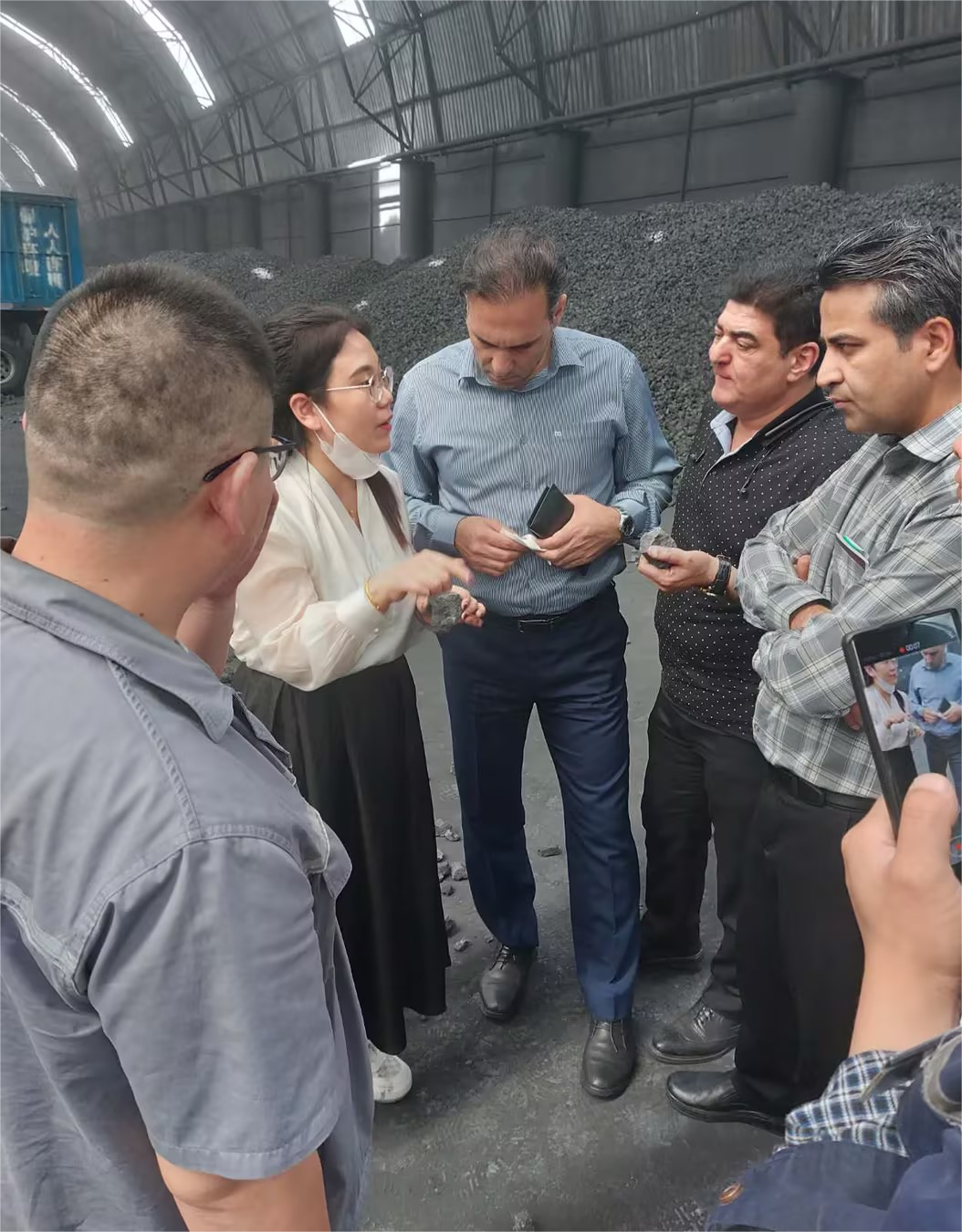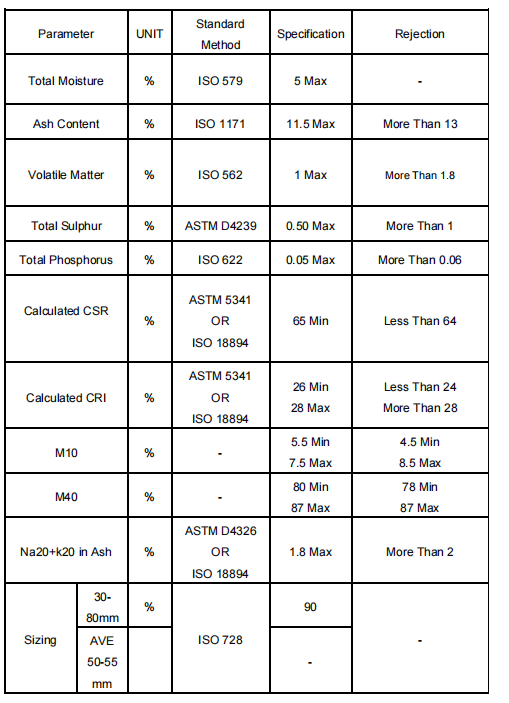Recently, customers from the Middle East visited our factory and negotiated an order of 10,000 tons. The two parties had a very pleasant negotiation. The customer spoke highly of our products and equipment and has initially confirmed the intention to cooperate.

General manager communicating with customers on site

Customers conduct on-site inspection in our factory
Coke is a type of solid fuel. It is converted from coking coal through high-temperature carbonization at about 1000°C in a coke oven. Approximately 1.33 tons of coking coal are consumed to produce 1 ton of coke. The main component is fixed carbon, followed by ash, and contains very little volatile matter and sulfur. Silvery gray with metallic luster. Hard and porous. Most of its calorific value is 26380~31400kJ/kg (6300~7500kcal/kg).
Metallurgical coke is the collective name for blast furnace coke, casting coke, ferroalloy coke and coke used for non-ferrous metal smelting. Since more than 90% of metallurgical coke is used in blast furnace ironmaking, blast furnace coke is often called metallurgical coke. Metallurgical coke is mainly used in blast furnace ironmaking and blast furnace smelting of non-ferrous metals such as copper, lead, zinc, titanium, antimony, mercury, etc. It functions as a reducing agent, exothermic agent and material column skeleton. Metallurgical coke has become one of the necessary raw materials for modern blast furnace ironmaking technology. It is known as the "basic food" of the steel industry and has important strategic value and economic signifcance.

Parameters of metallurgical coke
This visit from Middle East customers has laid a solid foundation for our long-term and stable cooperation in the future. In the future, we will always insist on using leading products and high-quality services to expand the market and enhance the company's influence.
Previous: Effect of sulfur on steel properties
Next: Coke market price trends
